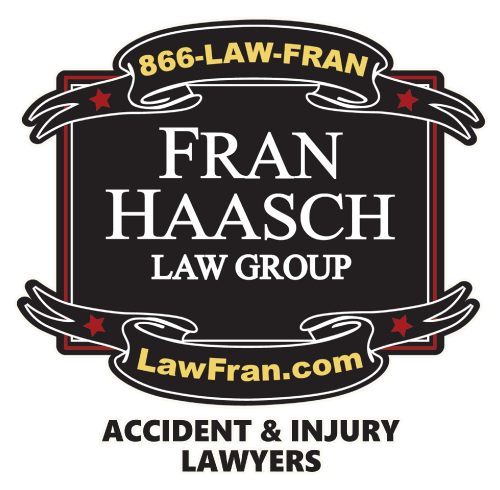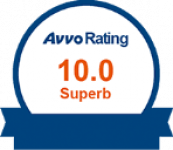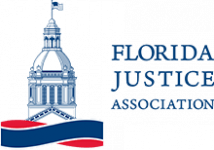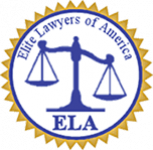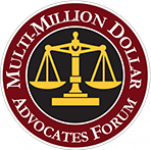If you have been injured in an accident in Florida, you may be wondering if you have a personal injury claim. The good news is that many accidents do qualify for a personal injury claim, and there are some specific factors to look at to determine if your case qualifies.
The best way to determine if you have a personal injury claim is to contact a personal injury attorney. At The Fran Haasch Law Group, we will help you determine if you have a claim and help you pursue compensation.
Factors to Consider Before Filing a Claim
The Severity of Your Injuries
The severity of your injuries is the first factor to consider when deciding whether or not to file a personal injury claim. If you have suffered minor injuries that do not require medical attention, you may not have a strong enough case to file a claim. However, if you have suffered more serious injuries that required hospitalization or ongoing medical treatment, you may have a stronger case.
Who Is At Fault for the Accident
Another factor to consider is who was at fault for the accident. If you were injured in an accident caused by another person or company, you might have a personal injury claim against them.
The Cost of Your Damages
Finally, you will need to consider the cost of your medical bills and other damages. If the cost of your medical bills is relatively low, it may not be worth your time to file a personal injury claim. However, if the cost of your medical bills is high or if you have suffered other damages such as lost wages or property damage, to prevent paying out of pocket costs you may want to file a claim.
These are just a few of the key factors to consider when deciding whether or not to file a personal injury claim in Florida. If you have been injured in an accident, speak with an experienced personal injury lawyer to discuss your case and find out if filing a claim is right for you.
Common Types of Personal Injury Claims in Florida
Some of the most common types of claims in Florida include:
Car Accidents
Car accidents cause the most personal injuries in Florida. According to data from the Florida Department of Highway Safety and Motor Vehicles, there were 403,626 recorded crashes in 2018. These crashes resulted in 236,157 recorded injuries, of which 19,196 were incapacitating. If you have been injured in a car accident, you must file a claim with your own insurance company before you can pursue a claim.
Motorcycle Accidents
Motorcycle accidents often result in serious injuries due to riders’ lack of protection.
To file a personal injury claim after a motorcycle accident, you must first prove that the other driver was at fault. This can be difficult to do, so it is important to speak with an experienced lawyer who can help you gather the evidence you need to build a strong case.
Truck Accidents
Another common type of personal injury claim in Florida is for truck accidents. Truck accidents can often be more serious than car accidents, and they can often result in more severe injuries. If you have been injured in a truck accident, you may be able to file a personal injury claim against the truck driver or their company.
Personal Injury Law in Florida
If you have been injured in an accident, it is important to understand your rights under Florida law. Personal injury claims can be complex, and it is important to speak with an experienced lawyer who can help you build a strong case.
Elements in a Florida Personal Injury Case
You will need to prove four key elements to succeed in a personal injury claim.
What Is a Reasonable Duty of Care?
The duty of care owed to you will depend on your relationship with the other person or company. For example, drivers have a duty to take reasonable care when driving. This means following the rules of the road and driving safely.
Business owners also have a duty of care to their customers. This means that they must take reasonable steps to prevent accidents from happening on their property.
Proving a Breach of Duty in Florida Personal Injury Cases
Once you have shown that the other person or company owed you a duty of care, you must then show that they breached this duty. This means that they did not take reasonable steps to prevent the accident from happening.
For example, if you are injured in a car accident caused by a drunk driver, the driver has breached their duty of care to drive safely.
Proving Causation in Florida Personal Injury Cases
To prove causation, you will need to show that the other person’s negligence was a direct cause of your injuries. This means that if you had not been injured in the accident, you would not have suffered the damages that you did.
For example, if you are in a car accident and suffer a broken arm, you will need to show that the other driver’s negligence caused your injury. To do this you may need to provide medical records, witness statements, and pictures of your injuries. If you had already broken your arm before the accident, you would not be able to prove causation.
Proving Damages in Florida Personal Injury Cases
To prove damages, you will need to show the extent of your injuries and the financial losses you have suffered. This can include medical bills, lost wages, pain and suffering, and more.
For example, if you are in a car accident and suffer a broken arm, you will need to show your medical bills as proof of damages. If you have lost wages because you cannot work, you will also need to provide documentation of this.
Comparative Negligence in Florida
Effective from March 2023, Florida’s fault system underwent a significant change under HB 837, replacing the previous pure comparative fault model with a “greater percentage of fault” approach. This new comparative negligence system restricts parties from claiming damages if they are more than 50% responsible for their own harm. It is crucial to understand the implications of this legal shift and how it can impact the outcome of personal injury cases. If you have been involved in an accident, seeking the guidance of a knowledgeable attorney can help you navigate these changes and ensure you receive the compensation you deserve.
The Statute of Limitations for Florida Personal Injury Cases
in florida, you have two years from the date of the accident to file a personal injury claim. If you do not file your claim within this time frame you will be barred from recovery.
It is important to begin working on your case as soon as possible. Evidence can disappear over time, and witnesses can become harder to track down.
Florida’s No-Fault Car Insurance Rule
Florida is a no-fault state when it comes to car insurance. This means that each driver’s own insurance company will pay for their damages up to a certain limit, regardless of who was at fault for the accident.
The minimum limit for personal injury protection is $10,000. This insurance will help cover medical expenses up to a certain limit. The minimum limit for property damage liability is also $10,000. This coverage will help pay for property damages to the other driver’s property.
Evidence You May Need to Prove Your Claim
To win your personal injury case, you will need to prove that the other party was at fault and that their actions led to your injuries. The best way to do this is with evidence.
Some of the types of evidence that may be used in a personal injury case include:
- Police reports
- Witness statements
- Photos and videos
- Medical records
- Text messages and emails
If you have been injured in an accident, it is important to save any evidence that you think may be relevant to your case. This will give your attorney the best chance of success.
What to Do If You Are Injured in an Accident
If you have been injured in an accident, you should first seek medical attention. Once a doctor has seen you, you should reach out to a personal injury attorney.
At The Fran Haasch Law Group, our experienced personal injury attorneys can help you determine if you have a claim and guide you through every step of the process. We will fight to get you the compensation you deserve.
What Does a Florida Personal Injury Lawyer Do?
A Florida personal injury lawyer will help you navigate the legal process and ensure that your rights are protected. They will gather evidence, speak to witnesses, and build a strong case on your behalf.
Personal injury lawyers will also handle all paperwork and negotiations with the insurance companies. And if you wish to pursue a personal injury lawsuit, they will be by your side every step of the way.
Compensation Available for Injured Victims
If you are successful in your personal injury claim, you may be entitled to compensation for your damages. The amount of compensation you are entitled to will depend on the severity of your injuries and their impact on your life.
Economic Damages
Economic damages have a specific monetary value, such as medical bills and lost wages. These damages can be easily calculated by looking at the bills you have incurred or the wages you have lost.
Non-Economic Damages
Non-economic damages are more difficult to calculate because they do not have a specific monetary value. These can include pain and suffering, emotional distress, and more.
There is no cap on the amount of non-economic damages you can recover in a personal injury case in Florida. This means that if you have suffered severe injuries, you may be entitled to a large amount of compensation.
Punitive Damages
Punitive damages are rare and designed to punish the at-fault party for their actions. They are only awarded in cases where the at-fault party acted with gross negligence or recklessness.
Contact an Experienced Personal Injury Lawyer at The Fran Haasch Law Group
At The Fran Haasch Law Group, we are committed to fighting for your fair recovery. We strive to help injured individuals and the loved ones of those wrongfully killed, secure the full, fair recovery they are owed. We offer dedicated legal representation for personal injury victims.
If you feel you have been the victim of a personal injury accident through no fault of your own. Our attorneys are prepared to help you navigate the legal process and work toward securing the maximum compensation you are owed. Call (727) 784-8191 or contact us online to get started on receiving maximum compensation for your personal injury case.
